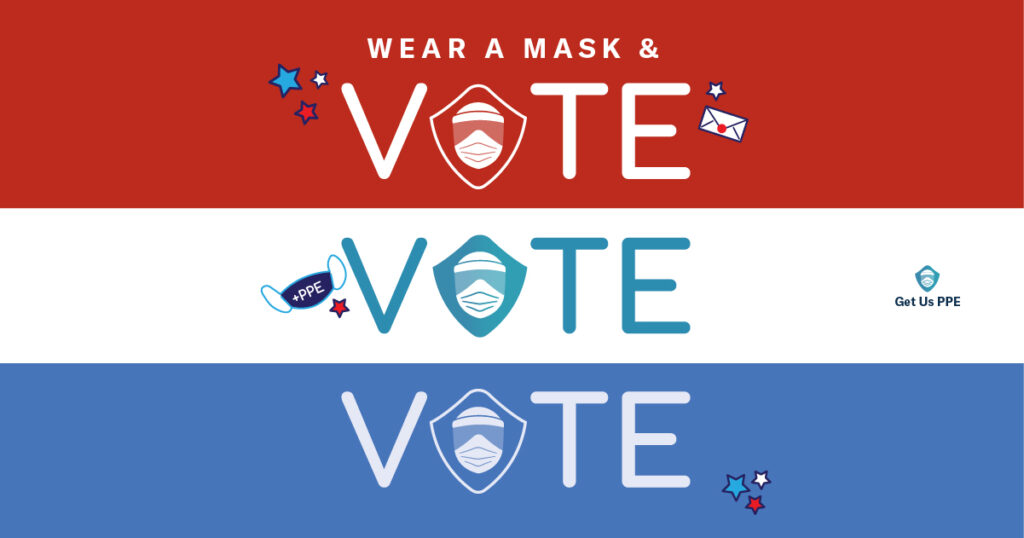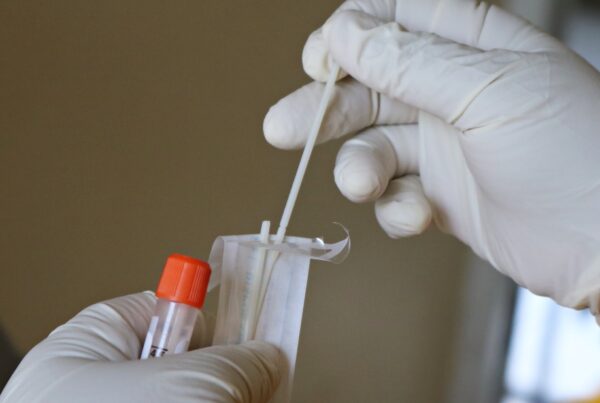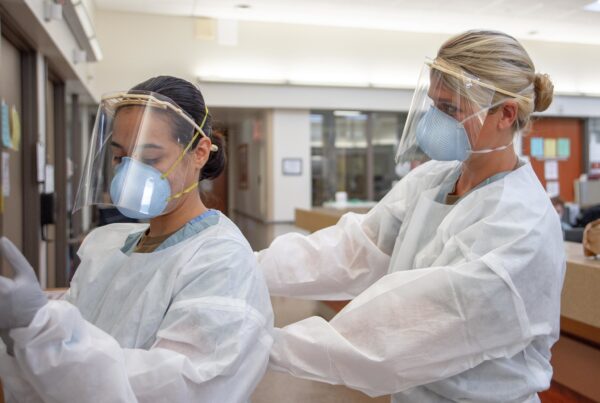The Big Picture
The United States reported 99,321 new cases this Friday, officially breaking the global record for single-day cases reported. In total, our country has over nine million cases and 230,000 deaths. CNN reports the United States has seen its top five records in daily cases within the past eight days, and experts warn these are signs that death rates will increase. 31 states have seen record highs in case numbers during October, according to Johns Hopkins. All of this data points to a clear conclusion: the United States has still not overcome this virus.
Nursing Homes Face Extreme Shortages
As the third wave of this virus continues, nursing homes are being pushed to the brink. While nursing homes have always faced PPE shortages during this pandemic, the increase in cases and hospitalizations has made them extremely vulnerable to shortages. The U.S. Public Interest Research Group recently released a report stating about 3,000 nursing homes have less than a week’s worth of PPE left. In general, nursing homes are running low on gloves, N95 masks, gowns, and more, in turn limiting their ability to safely take care of staff and residents. Because healthcare workers in nursing homes are taking care of senior patients, who have a much higher risk of becoming severely ill from the virus, getting PPE to them essential.
Nursing homes have long been seen as a hotspot for the coronavirus. According to the Kaiser Family Foundation, cases derived in nursing homes account for over 40% of COVID-19 deaths.
Get Us PPE request data between August and mid-October of 134 long-term care facilities, including nursing homes and assisted living facilities, showed that 32% of these facilities were completely out of one or more types of PPE and had at least one confirmed COVID case.
Outbreaks among nursing homes have been unpredictable, and staff are often unsure of when their next shipment of PPE will come in. So far, the highest rates of disease have occurred in nursing homes with predominantly Black and Latino residents, mirroring the trend the United States has seen as a whole.
Stockpile and Supply Chain Problems
The lack of PPE in nursing homes is not unique. Nursing homes, small clinics, and rural healthcare centers are all falling behind in the fight to obtain PPE. Meanwhile, wealthier, larger corporations have dominated the supply chain, shutting out small facilities treating COVID-19 patients.
Rhonda Bergeron, the owner of three rural healthcare clinics, explains her frustration. “So in the midst of the whole world shutting down, you can’t get PPE to cover your own employees. They’re refilling stuff to larger corporations when realistically we are truly the front line here.”
The power of large corporations, along with new stockpile regulations put in place in many states is causing PPE to go into warehouses when it should be getting delivered to frontline workers.
The Get Us PPE September Index, shows that over 90% of Get Us PPE’s recent requests have come from small, non-hospital facilities, such as nursing homes, homeless shelters, and physician offices. Dr. Ali Raja, Co-Founder of Get Us PPE, told NBC News: “Smaller places simply not only can’t stockpile, but also can’t get enough for their day-to-day use.” He continues to explain, “What good does it do a community to have a hospital stockpile when the nursing home down the street has no PPE?” Many other experts worry this trend will continue if others see stockpile legislation put in place by states such as California as an example.
Stockpiles are not the only reason preventing small facilities from accessing PPE. Supply chains rely on order history to fulfill requests when they are facing shortages. Since nursing homes and other non-hospital facilities didn’t use much PPE before the pandemic, they are not prioritized when suppliers decide who gets a new supply of PPE.
Dr. Michael Wasserman, former President of the California Association of Long Term Care Medicine, expresses the anger many healthcare workers are experiencing. “Here we are in October, and the fact that there is not an abundance of PPE for every nursing home in the country is a literal abomination. Without PPE, you lose to this virus,” he said.
Voting with PPE
With election day today, many people have voted early. With the various options available for voting, there are a variety of safe ways individuals can cast their ballot. When voting in person, NPR emphasizes the importance of wearing a mask and following social distancing guidelines. They also recommend bringing hand sanitizer. With cases rising in almost every state, taking precautions is more important than ever. Officials explain that the less congestion and delays, the safer the voting process will be for everyone.
This Week at Get Us PPE
The Get Us PPE September Shortage Index was cited in local media to help explain the reasons behind PPE shortages. After surveying 670 health care organizations, the index shows 41% did not have more than a week’s supply of N95 masks. 20% of the organizations had no more masks. These shortages are forcing many people to disinfect N95 masks and reuse each up to 30 times. To troubleshoot, some organizations are purchasing large disinfecting machines that spray hydrogen peroxide vapor over a supply of used masks. Oftentimes, small non-hospital centers find this method more secure than attempting to purchase more PPE in the supply chain.
Alizee Weber, Deputy Director of Operations at Get Us PPE spoke with NBC DFW to discuss the barriers nursing homes face when trying to obtain PPE. She explained that while many suppliers are “back on track” and expanding their production capabilities, “the issue with smaller facilities such as nursing homes and others within the country is the fact that there are many barriers to access PPE. Some of them are in more rural areas and don’t necessarily have access to suppliers, nor do they have the necessary funding.” Furthermore, quality control hinders a nursing home’s ability to access PPE. With many suppliers setting high minimum order quantities, small facilities are being shut out of many opportunities.
Dr. Shikha Gupta, Executive Director of Get Us PPE, also spoke about the unequal distribution of PPE. She stated, “As the supply chain repaired itself to some degree over the summer, large hospital systems have been able to stock up on PPE in recent months… but smaller facilities, especially in under-resourced communities, are still unable to find affordable PPE.”
As masks become part of our new normal, they have become integrated into our fashion. As seen in Cosmopolitan, you can buy a mask from Parachute Home and part of the proceeds will be donated to Get Us PPE.





